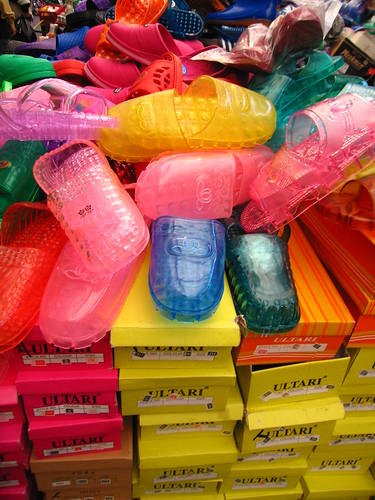To go along with the previous *blog all dog-eared pages* post, an additional description of *what plastic is* — to include alongside of all the others chemical, political, economical, historical, technical, medical, fictional, &c — done in the story-told style, again from a dog-eared page in Richard Powers’ *Gain* — a fictional industrial historical novel of a soap-making company alongside the memoir of those implicated in its adventures to make the world clean, we find this formula:
Plastic happens; that is all we need to know on earth. History heads steadily for a place where things need not be grasped to be used. At a shutter click, a bite-sized battery dispatches a blast through a quartz tube filled with halogens. Excited electrons, falling back down the staircase of available energy states, flash for a second, to dissipate the boost that lifted them briefly into rarefied orbitals. This waste energy bounces off the lines of a grieving face and back down the hole of the aperture, momentarily opened. Inside, reflected light ruffles the waiting film emulsion like a child’s hand impressing a birthday cake. Years from now, metal from the flash battery will leach into runoff and gather in the fat of fish, then the bigger fish that eat them.
Why do I blog this? I like these adjunct descriptive-formulae for things that reframe things in contexts as suited-for and as relevant as what one might typically consider *the* description. Plastic may almost always be framed as in the context of its chemical properties, or chemical architecture. Perhaps also in its marketing terms — how it is sold, or how to frame it as a useful, beneficial part of one’s life. Which of its many varieties can be recycled, which is often never *just* an aspect of its chemical properties, but also a municipal decision or even a legal ordinance that dictates that it *must* be recycled if it is sold in a specific geography. An so on. These multivalent, multiple terms that *are* what make something what it is — their ontological furniture of all sorts, not just the habitual, common-place or “common knowledge”, but those valences of a thing that go alongside of it as well, that are as material and as relevant as the proto-typical and everyday. Perhaps even more relevant, as the Powers’ passage above suggests. More everyday and experienced rather than the rarefied industrial-chemical.
Can these alternatives provide a more legible basis for telling a story about something, and do so in a way that is more meaningful and with deeper, thicker, world-changing impact?
Continue reading Plastic Happens
